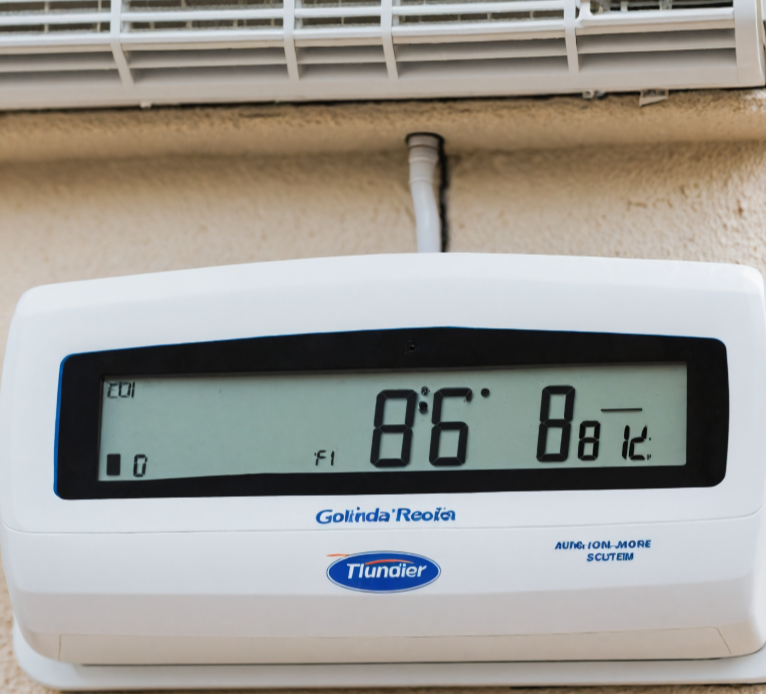
How HVAC Systems Can Help Reduce Allergies and Asthma Triggers
In Florida’s warm and humid climate, maintaining indoor air quality is vital, especially for people suffering from allergies and asthma. HVAC (Heating, Ventilation, and Air Conditioning) systems do more than just control temperature—they play a crucial role in reducing allergens and asthma triggers in your home. For residents in Largo, FL and surrounding areas, understanding how your HVAC system can improve your indoor environment is essential to breathing easier and living healthier.
What Makes Allergies and Asthma Triggers Worse Indoors?
Indoor air can harbor many irritants like pollen, dust mites, pet dander, mold spores, and volatile organic compounds (VOCs). These airborne particles can accumulate and circulate, especially in poorly ventilated spaces, worsening allergy and asthma symptoms. Humidity levels, if unchecked, foster mold growth and dust mite proliferation, compounding the problem.
The Role of HVAC Systems in Allergen and Asthma Trigger Reduction
Effective Air Filtration
Modern HVAC systems can be equipped with high-efficiency particulate air (HEPA) filters or MERV-rated filters designed to capture microscopic allergens and irritants that regular filters miss. These filters trap pollen, dust mites, pet dander, and even some bacteria, removing them from circulating air. Regularly changing or cleaning filters is critical to maintaining this protection.
Consistent Air Circulation and Ventilation
HVAC systems regulate airflow, preventing stagnant air pockets where allergens accumulate. Proper ventilation introduces fresh air and exhausts stale indoor air, diluting pollutants and reducing allergen concentration. Energy Recovery Ventilators (ERVs) or Heat Recovery Ventilators (HRVs) in advanced HVAC setups enhance this process by exchanging stale indoor air with fresh, filtered air while conserving energy.
Humidity Control
Maintaining indoor humidity between 30% and 50% is vital. HVAC systems with humidifiers and dehumidifiers help keep moisture at optimal levels, preventing mold and dust mites that thrive in high humidity. Conversely, too dry air can irritate respiratory passages, so maintaining balanced humidity is a key benefit of a well-maintained HVAC system.
Air Purification Technologies
Some HVAC systems integrate UV lights or electronic air cleaners that neutralize airborne bacteria, viruses, and mold spores. These technologies add another layer of defense by killing or inactivating harmful microorganisms that trigger asthma and allergies.
Temperature Regulation
Keeping indoor temperatures stable reduces the stress on respiratory systems. Extreme fluctuations can irritate airways, while a comfortable environment supports overall health.
Maintenance and Professional Care
Regular professional HVAC maintenance is essential. Technicians inspect, clean, and tune systems to ensure filters are clean, ducts are free of mold and debris, and components function optimally. Air Mavericks offers comprehensive system evaluations and maintenance plans with financing options, making it easier for Largo residents to maintain a healthy home environment.
Benefits of a Healthy HVAC System for Allergy and Asthma Sufferers
Reduced airborne allergens and irritants
Better respiratory comfort and fewer asthma attacks
Lower mold and mildew growth indoors
Improved overall indoor air quality and comfort
Energy efficiency and cost savings from well-maintained systems
Frequently Asked Questions (FAQs)
Q: How often should I change my HVAC air filter to reduce allergens?
A: For allergy and asthma sufferers, it’s recommended to change or clean your air filter every 1-3 months. High-efficiency filters may require more frequent changes to maintain effectiveness.
Q: Can an HVAC system eliminate all allergens from my home?
A: While no system can remove 100% of allergens, a well-maintained HVAC system with high-quality filters and proper ventilation significantly reduces airborne particles that trigger allergies and asthma.
Q: Will using a humidifier help with asthma symptoms?
A: Yes, maintaining indoor humidity between 30-50% helps control dust mites and mold growth, which are common asthma triggers. Your HVAC system can help manage humidity through built-in humidifiers or dehumidifiers.
Q: Should I consider upgrading my HVAC system if I have allergies or asthma?
A: Upgrading to systems with advanced filtration, UV lights, or better ventilation features can improve indoor air quality and reduce symptoms. Our experts at Air Mavericks can assess and recommend the best solutions for your home.
Q: How does regular HVAC maintenance improve allergy and asthma control?
A: Maintenance ensures filters are clean, ducts are free of mold and dust, and the system operates efficiently, all contributing to better air quality and fewer allergens circulating indoors.
Closing
For residents in Hillsborough, Pinellas, and Manatee Counties, a dependable HVAC system is an essential ally in combating allergies and asthma triggers. The professionals at Air Mavericks specialize in installing, maintaining, and repairing HVAC systems tailored to Florida’s climate and your family’s health needs. Trust our honest technicians to keep your home’s air clean, comfortable, and safe year-round.
Contact Air Mavericks today to schedule your HVAC evaluation or service appointment. Breathe easier with the right HVAC system working for you.